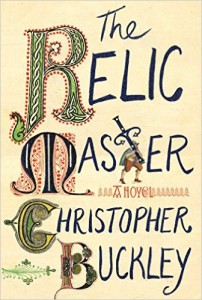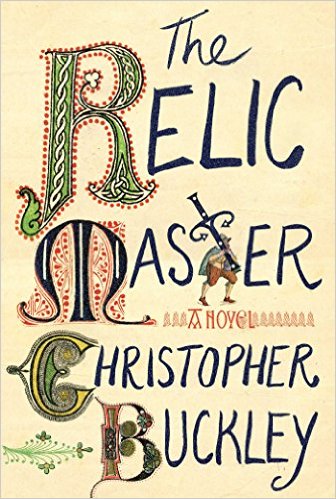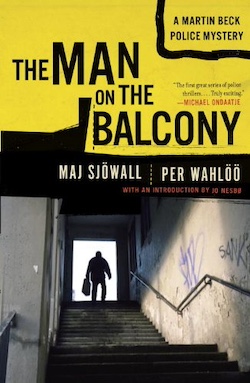
In an interview conducted by Deborah Solomon for the New York Times Magazine in 2008, Christopher Buckley engaged in this exchange, which will give you a fair idea of how he looks upon Catholic history:
[Your father] was a practicing Catholic. What are you? I am post-Catholic.
As opposed to a lapsed Catholic? I am probably more of a collapsed Catholic.
That’s about the size of it, to judge from Buckley’s latest satirical novel, The Relic Master. This diabolical tale is a send-up of the Catholic Church at what was probably the most unattractive period in its history. The dissolute scion of a notorious family, Lorenzo de’ Medici held forth in the Holy See as Pope Leo X, pursuing carnal pleasures and bankrupting the Vatican as a patron of the arts. He was perhaps the most corrupt and immoral in a long line of unspeakably awful Popes. In Wittenberg, in reaction to the excesses of Leo’s Church, the Augustinian monk Martin Luther began his campaign for reform. So went Catholic history.
The Relic Master by Christopher Buckley (2015) 401 pages ★★★★★
A tale of the Reformation
In The Relic Master, Christopher Buckley spins a tale built around the historical figures who played key roles in the early days of the Reformation: not just Leo and Luther themselves, but also Johann Tetzel, the Dominican friar commissioned by the Pope to raise money for the construction of St. Peter’s Basilica; Tetzel’s greedy bishop, Cardinal Albrecht of Mainz; and Elector Frederick “the Wise” of Saxony. The brilliant German painter, Albrecht Durer, plays a major part in the story, too.
The plot is built around two historical artifacts that helped to define the Catholic Church of the era: the veneration of “relics” of the crucifixion of Jesus and the martyrdom of the saints, and the notoriously corrupt practice of selling “indulgences” to credulous followers of the Church. By paying money to Tetzel (who split his take with Cardinal Albrecht), the ignorant believers of the era presumably were pardoned for a period of time in Purgatory, the more money they paid, the longer the period. Failing that, according to the Church, they would languish in Purgatory for hundreds of years.
The Relic Master in person
The protagonist, identified in the book’s title as the Relic Master, is Dismas, a former soldier of fortune turned relic-hunter. He pursues the choicest relics for his two principal clients, Cardinal Albrecht of Mainz and Frederick of Saxony. Frederick was nominally the more powerful of the two, because he held the powerful title of Elector of the Holy Roman Empire, one of a handful of officials who would choose the next Emperor. To help his clients continue to build their unparalleled collections of relics — each of them containing more than 10,000 items — Dismas scours Europe and the Middle East, stopping by “relic fairs” that are scenes of hilarity. All goes well until Dismas loses the fortune he has accumulated in a 16th-century version of a Ponzi scheme. His friend, the artist Albrecht Durer, persuades him to engage in an elaborate fraud against the Cardinal that will make them both rich. And that is the beginning of the end of the tale.
Where does satire come from?
By giving reality a few twists in one direction or another, satire makes us think. The Relic Master is a great case in point.
At this remove of five centuries, it’s difficult to understand how the people of the time could have been so colossally ignorant as to believe such nonsense. Yet, as I look around myself in the early 21st century, I can’t avoid thinking about today’s religious absurdities: the unfathomable violence of Muslim extremists, the irredentist absurdity that motivates ultra-Orthodox Jews, and the dogged insistence of fundamentalist Protestants in the literal truth of the Bible in the face of centuries of evidence to the contrary. Is there something in the nature of the human race that impels some of us to grasp so tightly onto such ridiculous fantasies? Sadly, it would appear so.
About the author
Christopher Buckley has long since managed to transcend his identity as the son of William F. Buckley, Jr., one of the founders of modern conservatism in America. Early in life, he became editor of Esquire magazine and shortly afterward a speechwriter for President George H. W. Bush. In addition to a number of nonfiction books and numerous contributions to magazines, he has written ten satirical novels, of which three have been produced as films.
For more great reading
I’ve read many of Buckley’s novels. My review of one is at Wondered where UFOs come from? Christopher Buckley has the answer. You’ll find another at Self-help gurus get their comeuppance from Christopher Buckley. In fact, you’ll find this and all the author’s other funny books reviewed at Christopher Buckley writes satirical novels that are very, very funny.
You might also be interested in My 17 favorite funny novels or Top 10 great popular novels.
If your taste runs to genre fiction, check out my posts:
- Great sci-fi novels reviewed: my top 10
- My 20 favorite espionage novels
- 20 excellent standalone mysteries and thrillers
And you can always find my most popular reviews, and the most recent ones, on the Home Page.



























